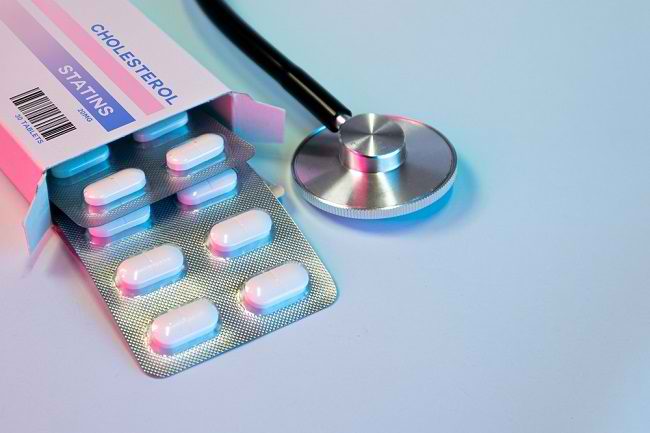6 Cholesterol Drugs to Lower High Cholesterol
Cholesterol drugs are usually used when lifestyle improvements alone don't work to reduce high cholesterol levels in the body. OThis drug consists of various types and the administration needs to be adjusted to the condition of the sufferer.
Lifestyle changes, such as eating a healthy diet and exercising regularly, are sometimes not enough to lower high cholesterol. In fact, high cholesterol levels can actually trigger cardiovascular disease, hypertension, and even kidney disease

Therefore, to make cholesterol levels return to normal and prevent various complications from high cholesterol, doctors will give cholesterol drugs to sufferers.
Different Types of Cholesterol Medication
In addition to lowering cholesterol, some cholesterol medications can also lower bad fats (LDL) or triglycerides and increase good cholesterol (HDL). Usually, doctors only give one type of cholesterol medication. However, in certain cases, the doctor will also give a combination of two types of drugs.The following are types of cholesterol drugs that can treat high cholesterol, namely:
1. Statins
Statins are the first type of cholesterol drug class that is commonly given to people with high cholesterol. This drug works by inhibiting an enzyme in the liver that produces cholesterol Statins can also reduce inflammation in blood vessels and reduce the risk of blood clots and heart attacks. Some cholesterol drugs in this class are simvastatin and atorvastatin.2. Cholesterol absorption inhibitors
This cholesterol drug works in the intestines to stop the absorption of cholesterol. That way, bad cholesterol levels will decrease. One type of drug in this class is ezetimibe.Drugs to inhibit the absorption of cholesterol can also be combined with statin drugs.
3. Bile acid binding drugs
When consumed, this cholesterol drug works by removing bile acids through feces. Its function is for the liver to take up a lot of cholesterol in the blood to produce more bile acids. That way, cholesterol in the blood vessels will be reduced.Bile acid-binding drugs consist of several kinds, including cholestyramine, colesevelam, and colestipol. Although effective in lowering cholesterol, this drug is not recommended for people who have blockages in the bile ducts.
4. Fibrates
Fibrates cholesterol drugs can break down and increase the disposal of triglycerides and bad cholesterol in the body. Some examples of fibrates are gemfibrozil and fenofibrate.The combination of one of these drugs with a statin needs to be done carefully because it can increase the risk of side effects of rhabdomyolysis. Therefore, the use of both needs advice and monitoring from a doctor.
5. Adenosine triphosphate-citrate lyase (ACL) inhibitors
ACL blocking drugs can prevent cholesterol production, so that cholesterol levels in the body will slowly decrease. ACL cholesterol drugs can be taken alone or together with statin drugs6. PCSK9 inhibitor
Usually, the PCSK9 inhibitor class of drugs will be used if the cholesterol drugs above don't work. Unlike other drugs, this drug is given by injection 2-4 times a week.
This cholesterol drug works by blocking the PCSK9 protein in the liver that supports the formation of bad cholesterol and releasing it into the blood. By inhibiting the PCSK9 protein, bad cholesterol in the blood can also decrease.In addition to the six types of cholesterol drugs above, people with high cholesterol are also advised to increase their intake of vitamin B3, fiber, and omega 3 fatty acids. These nutrients are also useful for lowering bad cholesterol and increasing good cholesterol in the body.
By taking cholesterol medication and maintaining a healthy lifestyle, the reduction of cholesterol levels in the body will be more effective. In addition, don't forget to avoid cholesterol restrictions, for example eating fatty foods and smoking
Also be sure to check your cholesterol levels regularly with your doctor, especially if you are at high risk for hyperlipidemia, such as obesity or diabetes, thyroid disorders, or polycystic ovary syndrome.
Label : Health
Comments
Post a Comment